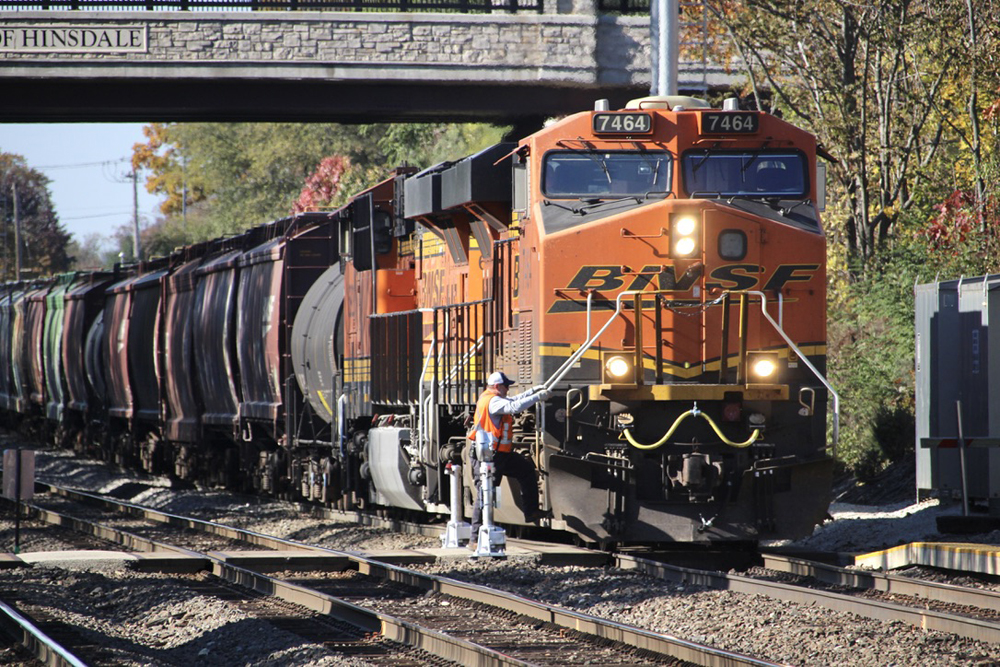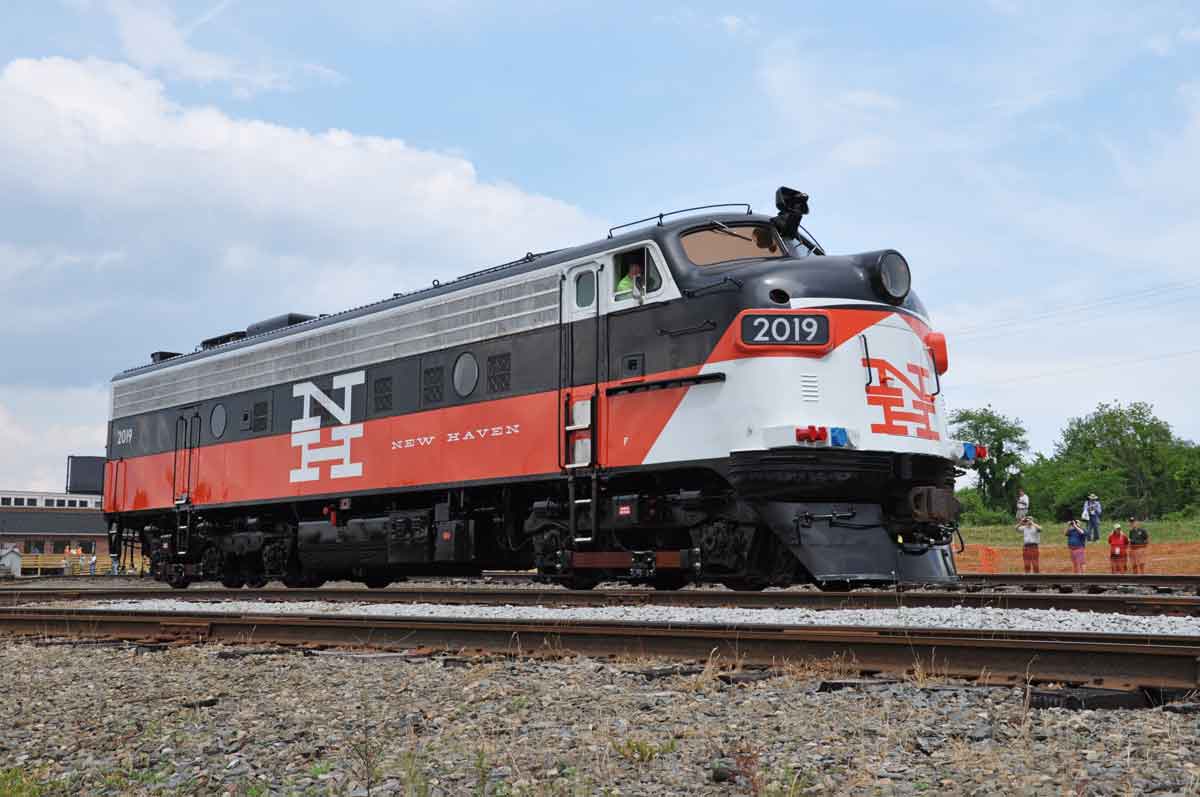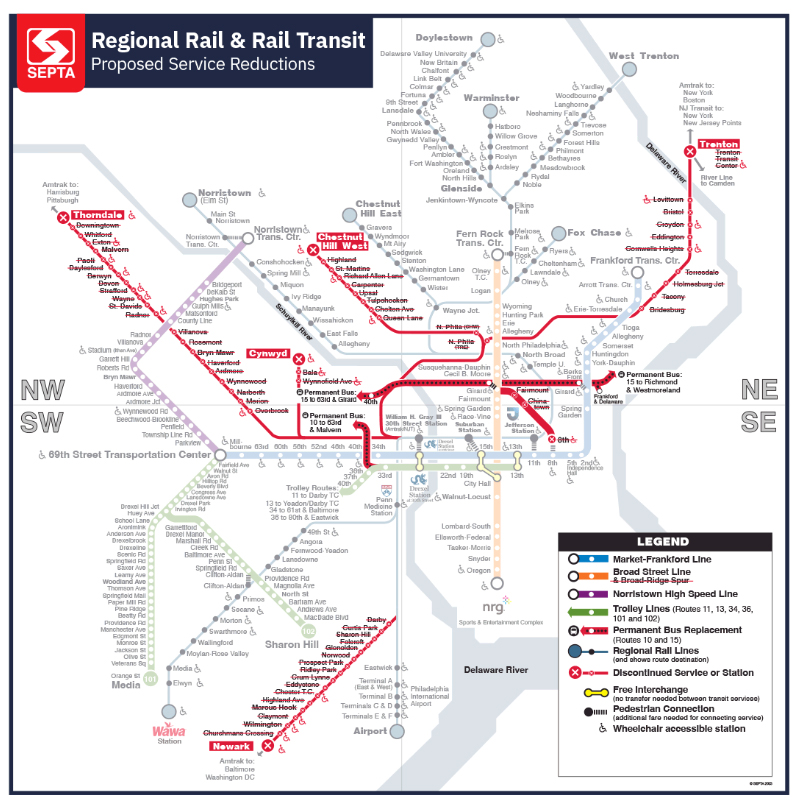
WASHINGTON — The U.S. Class I railroads and the union representing maintenance of way employees today agreed to extend their cooling off period through at least Dec. 4, eliminating the prospect of a national strike or lockout this month.
The prior cooling off period between the National Carriers Conference Committee and the Brotherhood of Maintenance of Way Employees Division of the International Brotherhood of Teamsters (BMWED) was set to expire on Nov. 19.
The extension puts the BMWED in alignment with the other four unions that have yet to ratify their tentative agreements with the Class I railroads, including the unions representing engineers and conductors.
The agreement is subject to further extension if necessary, the NCCC said. The two largest unions — the Brotherhood of Locomotive Engineers and Trainmen and the SMART-TD union that represents conductors — on Nov. 21 are set to release the results of the rank-and-file vote on their contracts.
Members of the BMWED rejected their tentative deal with the railroads last month, as did the Brotherhood of Railway Signalmen. The other seven unions that are part of national negotiations have approved their agreements, which were largely based on the recommendations of the Presidential Emergency Board that was convened this summer after the railroads and unions could not reach a deal after nearly three years of negotiations.
“With this extension, BLET and SMART-TD will have the opportunity to finish their ratification procedures for any tentative national agreements without disruption,” the BMWED said in a statement. “If these Unions do not ratify, then we will have the opportunity to bring all of Rail Labor together, under a single deadline, to finish national negotiations. This is most appropriate given that we entered into the PEB together and we should continue through the final stages of this process together.”
BMWED also said the extension will allow the unions to educate members of Congress about working conditions and rail labor’s efforts to negotiate additional paid time off.
“Joining with the BRS and possibly the operating crafts will also improve our chances of not having Congress intervene on the railroads behalf and instead allow us to strike if necessary. This ultimately strengthens our chances to get paid sick leave,” the BMWED said.
The railroads have rejected union requests for additional paid time off, saying employees already have paid sick time benefits. “The structure of these benefits is a function of decades of bargaining where unions, including BMWED, have repeatedly agreed that short-term absences would be unpaid in favor of higher compensation for days worked and more generous sickness benefits for longer absences,” the NCCC has said.
The Association of American Railroads said the extension provides greater certainty for the economy, shippers, and passengers in advance of the Thanksgiving holiday.
“This agreement to extend the cooling off period affords all unionized employees the opportunity to vote on their agreements free of a looming strike threat,” AAR CEO Ian Jefferies said in a statement.. “Our goal remains the same — successfully completing this round of bargaining — and we stand ready to reach an agreement with BMWED based upon the Presidential Emergency Board’s recommendations.”
The tentative agreements reached provide employees a 14.1% wage increase effective immediately and a 24% wage increase by 2024, the largest increase in five decades.














Why an industry that is rolling in profits and high stock value wants to cost itself a lot of money and hurt those profits for the sake of making the people who make it posiable to make those profits take it on the chin, is beyond rational.
The only long term sickness benefits that are paid are paid through the railroad retirement board and in order to get them you have to take medical leave from the railroad. Many of us have private insurance plans we pay ourselves to supplement rrb benefits but the railroad pays nothing. Short term like a few days if say you get the flu are considered by my railroad unavailable days and subject to point subtraction. Which is what we’re sick and tired of dealing with( no pun intended) and is why we are pushing for sick days that are unpunishable under these point systems.
I forgot to mention that the vast majority aren’t concerned with whether the short term sick days are paid which they never have been unless you take a Pld or personal day( that you can never get due to extremely tight allocations set by the carriers) we just want to be able to to take a day off we get a flu or something like that without getting punished. It really hasn’t been about money at all.
Operating crafts have never had any sort of generous sickness benefits for any term of sickness. The only benefit the railroads seem to have for sickness is if you’re sick to bad points docked, if you stay marked up sick you get paid- that’s the benefit. M/W may have them but by the way they’ve voted they must not be anything to write home about or it wouldn’t be a sticking point. We shall see how it all shakes out,and politically it’s not looking very promising for the railroads either.
Simple question Eric…has not the past precedence been to have that short-term(3 days or less) unpaid? Then anything long term would fall under the Railway Labor Act for long term illness(disability), whatever that happens to be is what I think the railroads are referring to. You can correct if wrong on the first part, the second part is conjecture but knowing how they(RR’s) think that’s the avenue I’d be looking at.